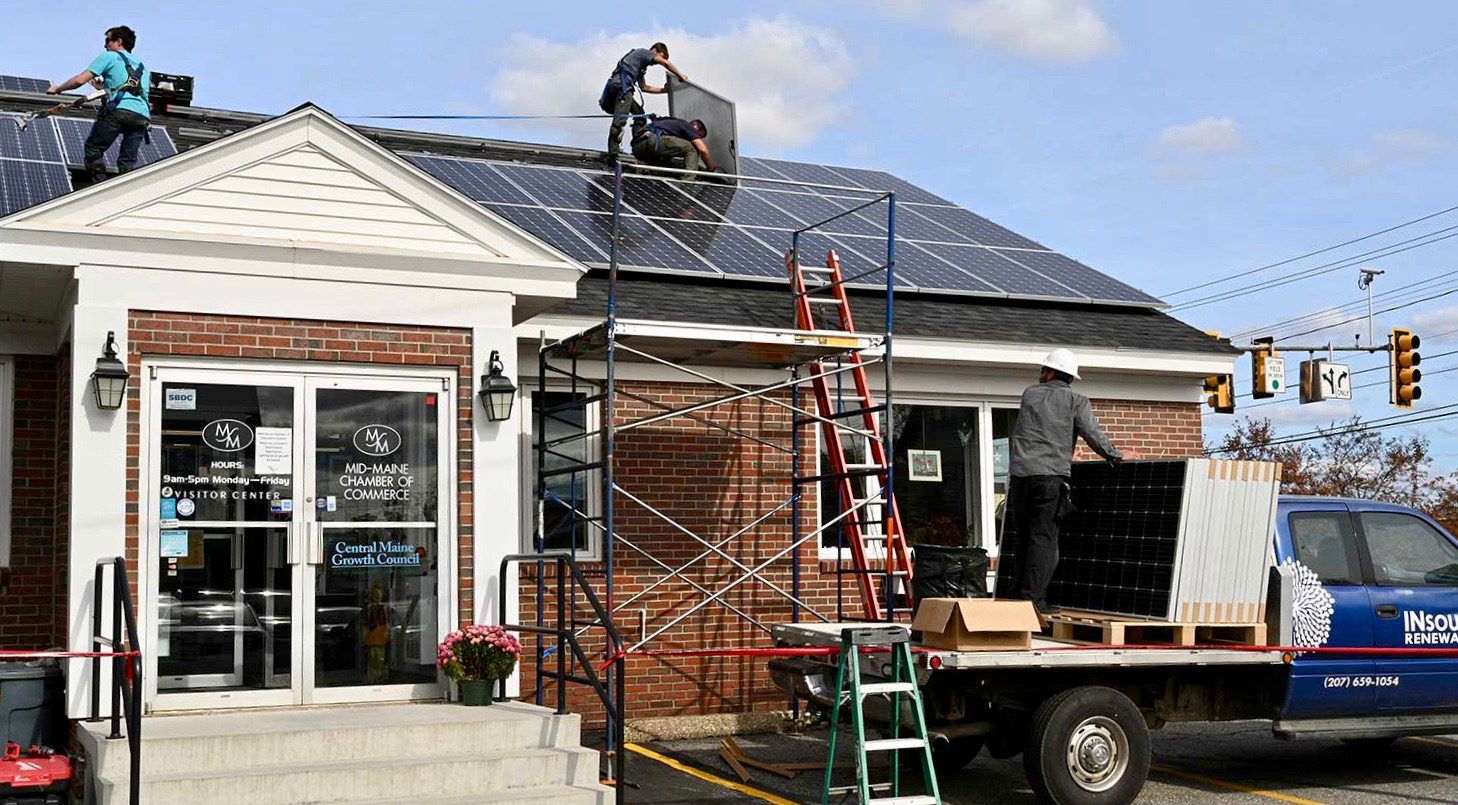Extended drought conditions amid an already busy wildfire and outdoor recreation season has state officials on high alert during the final few weeks of summer.
As of Sept. 8, rangers have put out over 910 fires in 2020 — the most Maine has seen in 10 years, according to Jon Blackstone, a district forest ranger with the Maine Forest Service.
That includes 120 blazes started from campfires not properly extinguished. Officials noticed a dramatic increase in first-time recreators this year, likely due to people flocking outdoors because of the coronavirus pandemic, said Blackstone.
Maine has two fire seasons — one in spring, another in late summer and early fall. There’s usually a break in June, a time officials call “green up” because the land gets a break from fires due to a wet spell.
“This year, in June, we didn’t get any green up. We just ran right steady from fire to fire,” said Blackstone. “We’re also finding some challenges at getting water for our engines.”
Firefighters typically scope out boat launches or bridge crossings to suck up water and fill fire engines, said Blackstone. This year, “the brooks and the rivers are so low that we can’t get to (boat launches or bridge crossings), and we have to drive farther to find a place where we can get water.”
To address dry conditions, low water levels and minimal precipitation, Maine’s Drought Task Force held an emergency meeting July 24 and reconvened again on Sept. 3.
While a significant rain event in Northern Maine helped in late August,, the task force is closely monitoring several areas, including the St. John and St. Croix basins in Aroostook County — and much of Washington County.
Surface water levels dwindle in Aroostook County
The state Department of Environmental Protection (DEP) reported notably low stream and river flows in Aroostook County as severe drought conditions linger.
“We’ve been in severe drought for well over a month now,” said Bill Sheehan, director of the DEP’s Northern Maine office in Aroostook
County. Sheehan said the unusually dry conditions have persisted for much of the summer for the past five years.
“It’s been bad,” said Sheehan. “We’re very, very, short on precipitation up here.”
The limited rainfall means low surface water and limited irrigation resources for farming families who rely on a fall harvest.
“Potatoes and green crops and hay crops (are) all affected,” said Sheehan. “This is a pretty serious deal.”
Less precipitation and higher temperatures jeopardize Aroostook’s farming culture.
“Everybody’s recognizing the fact that climate change is affecting us up here in a place where it’s usually cold,” said Sheehan.
Investing in climate as economic remedy?
A new study lays out an economic recovery plan rooted in clean energy and infrastructure investments that would create jobs while supporting the aggressive sustainability goals outlined by Maine’s Climate Council.

The study, spearheaded by the University of Massachusetts-Amherst’s Political Economy Research Institute, was praised by the left-leaning Maine People’s Alliance.
“It shows how we can make those investments, reach those milestones, while creating 22,000 good-paying, quality jobs, which are also incredibly important right now,” said Mike Tipping, communications director at Maine People’s Alliance.
The study sees expansion of solar and wind projects, and retrofitting public buildings as ways to create jobs and reboot the recession caused by the coronavirus, with 88,000 Mainers on unemployment as of mid-August.
“We’re already seeing the effects of climate change on farms and on businesses, and on people throughout the state. And we’re also obviously in a very difficult spot right now,” said Tipping. “This is the moment to begin to address both of those.”
The clean energy investments outlined in the study are aligned with the Maine Climate Council goals and would require a $2.2 billion investment between 2021 and 2030.
The study said because federal economic recovery funding remains unclear, “we recommend that the state and local government in Maine develop contingency plans to support a strong recovery.”
The researchers look to the Federal Reserve Board’s “Municipal Liquidity Facility,” that allows state and municipal governments to sell billion-dollar bonds and borrow money at low rates.
“The next step is really putting our money where our mouth is,” said Tipping.
Somali refugees to purchase community farm
A 104-acre organic community farm in Wales will be managed by Somali refugees from the Somali Bantu Community Association (SBCA).

The Agrarian Commons raised $367,000 from over 1,500 donors to purchase the land outside Augusta as part of the SBCA’s Liberation Farms project.
The land will provide food for over 180 Somali Bantu families, and provide space for production farmers from SBCA living in the Lewiston-Auburn region to grow and sell their crop.
“The farm acquisition will create food security and the ability to grow culturally appropriate vegetables and grains,” according to the association’s website that outlines the Little Jubba Central Maine Agrarian Commons project and fundraiser.
The space would also promote food security, environmental stewardship and sustainable agriculture as the community preserves foods that are cultural staples.
The Agrarian Trust and Little Jubba Central Maine Agrarian Commons plan to purchase the land by the end of September.
Environmental group opposes metal mine
A Canadian company hopes to operate a 528-acre metal mine on Pickett Mountain, near Mount Chase in Penobscot County.
The company, Wolfden Resources, received a zoning permit from the Land Use Planning Commission (LUPC) in late July, a decision criticized by environmental advocates.
Opponents from the Natural Resources Council of Maine (NRCM) argue the company’s lack of a wastewater disposal plan threatens groundwater resources with toxic contamination, according to an Aug.12 press release.
The LUPC proposal didn’t explain how the company would treat toxic wastewater before injecting it back into the ground, reported Alexander MacDougall of the Bangor Daily News.
A public hearing about the rezoning is anticipated for later this fall. The LUPC welcomes public comments via email to vog.e1754674869niam@1754674869CPUL.1754674869gnino1754674869zerne1754674869dfloW1754674869.







